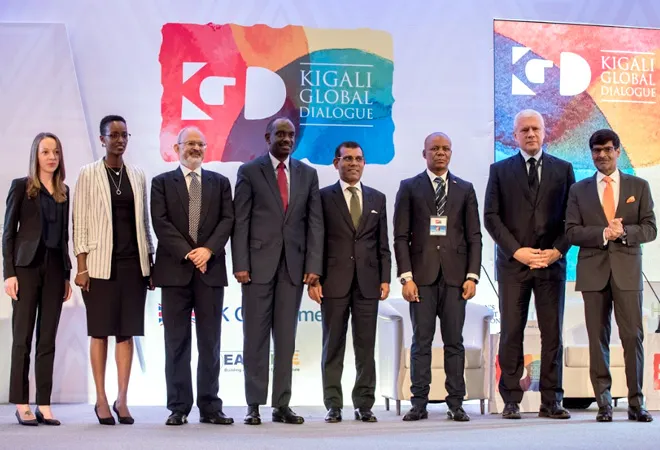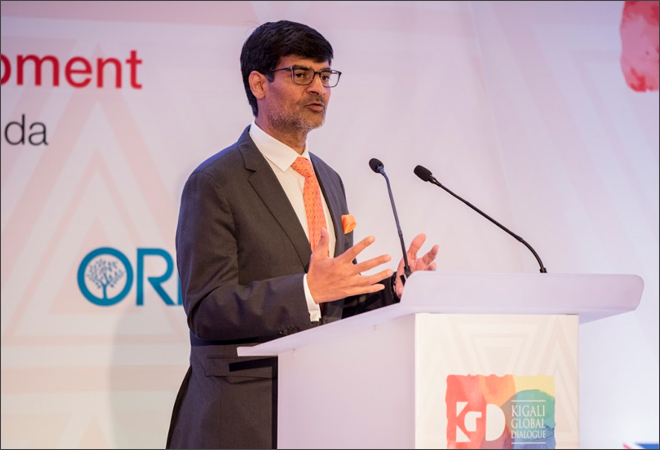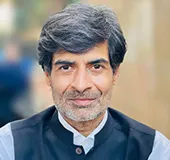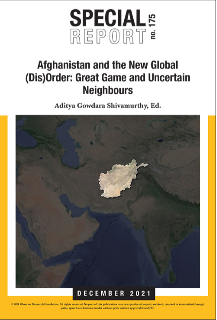
The government of Rwanda, Rwanda Convention Bureau, ORF, and UK-based Centre for New Economic Diplomacy, jointly organized the first Kigali Global Dialogue from July 3 to 5 at a top international hotel in the Rwandan capital.
The ORF played the lead role in holding the first of the dialogues, which will be held in Kigali every year from now on. The dialogue was intended to highlight the potential of Africa, especially Rwanda, a country that has made significant socioeconomic and technological improvement, leaving behind a bitter and violent past.
In an exclusive interview with Dhaka Tribune on the concluding day, ORF President Dr Samir Saran discussed the objectives and achievements of the dialogue.
Now that the dialogue is over, do you think you have achieved what you wanted to achieve? What are the achievements?
Samir Saran: I think this was only the beginning. As I said earlier, the ultimate objective is to create a more sustainable and equitable development architecture—one that is responsive to the interests of emerging economies around the world. This is easier said than done, but I think we have begun to bring together the people and organizations. They can make this happen. We are determined to organise such arenas that give agency to new voices and views around the developing world. It makes conversations richer, plural, and robust.
The agenda of the first ever Kigali Global Dialogue is vast. Could you briefly describe the objectives of the Dialogue?
SS: The agenda was vast because the Kigali Global Dialogue is an ambitious platform that seeks to engage new voices and regions on some of the most important questions of our times. It is an attempt to bring together stakeholders from the developed and developing world, to imagine a new global economic and development architecture shaped by many more stakeholders.
We identified three themes that were central to this: human capital, green energy and sustainability, and technological change and the future of work. These are the processes that will have a disproportionate impact on our development outcomes. We wanted to make sure that our communities are able to shape these trends.

Why did you choose Rwanda to help organize the mega event? What did ORF want to achieve from this dialogue?
SS: Rwanda’s governance propositions are widely hailed as a replicable model for emerging economies around the world. It is recognized as a leader in embracing green energy and technology in its development goals. It has placed people at the core of its political economy, and so it was a natural partner for us. ORF is a curator of conversations—we wanted to provide a platform for new voices, ideas, and solutions, and we are very grateful to our partners in Rwanda, the Government of Rwanda, and the Rwanda Convention Bureau for partnering with us on this important endeavour.
Are India's engagements and investments in Africa satisfactory? If not, how can things improve? Should India have a long term plan in this regard?
SS: Given the importance of India and Africa to the world, I would say investments are not sufficient. Both need to align actors, investments, and institutions, to strengthen their partnership. More importantly, both should now start seeing each other as natural partners for both economic growth and development of their societies. There needs to be more coordination in shaping economic and development regimes, and the media and think tanks need to engage more deeply with each other. We currently learn of the other from western sources.
There is a perception that India’s growing interest in Africa is to counter China’s formidable presence in the continent. Is there any point to this particular perception?
SS: India and African countries share a history that is as old as modern civilisations. In fact, the first wave of globalisation was sparked by these two regions. More recently, we share solidarity linked to the anti-colonial struggle. China is a new entrant to this old story. I think the Chinese presence in Africa certainly informs the method of India’s engagement, but it is incorrect to think that countering China is the driving factor behind India’s partnership with Africa.
The India-Africa relationship will fundamentally be driven by the search for new economic opportunities and development partnership between their respective communities. It is a unique and privileged partnership.
This interview originally appeared in Dhaka Tribune
The views expressed above belong to the author(s). ORF research and analyses now available on Telegram! Click here to access our curated content — blogs, longforms and interviews.





 PREV
PREV


